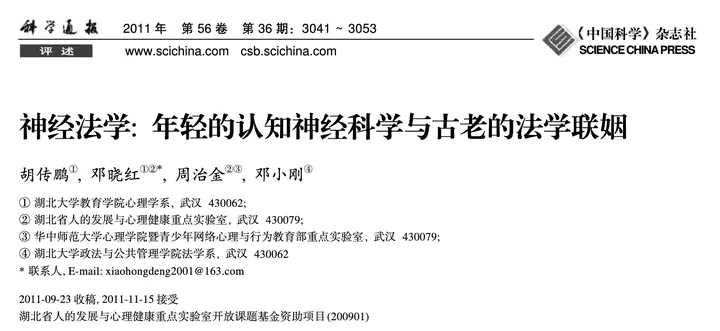 Image credit: Fig1
Image credit: Fig1
摘要
Neurolaw (also known as law and neuroscience) is a newly established interdisciplinary field that explores the neural mechanisms underlying mental phenomena and behavior relevant to the law, utilizing the methods and techniques of cognitive neuroscience. This field focuses on how legal systems address issues brought forward by advances in cognitive neuroscience. The present article reviews research from four aspects of neurolaw, including:(1) evaluating the reliability of testimony of persons such as witnesses, e.g. assessing truth-telling and false memories; (2) exploring the influence of cognitive neuroscience on legal practice and theories of criminal law; (3) predicting a particular individual’s future riskof recidivism to facilitate legal intervention and decision-making; and (4) regulating the application of drugs and techniques that manipulate cognition. The study of neurolaw not only deepens our understanding of psychological and neural mechanisms related to legal behaviors, but also influences legal practice. However, the emerging field of neurolaw needs to address differences in culture and legal systems between China and western countries.